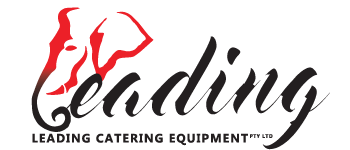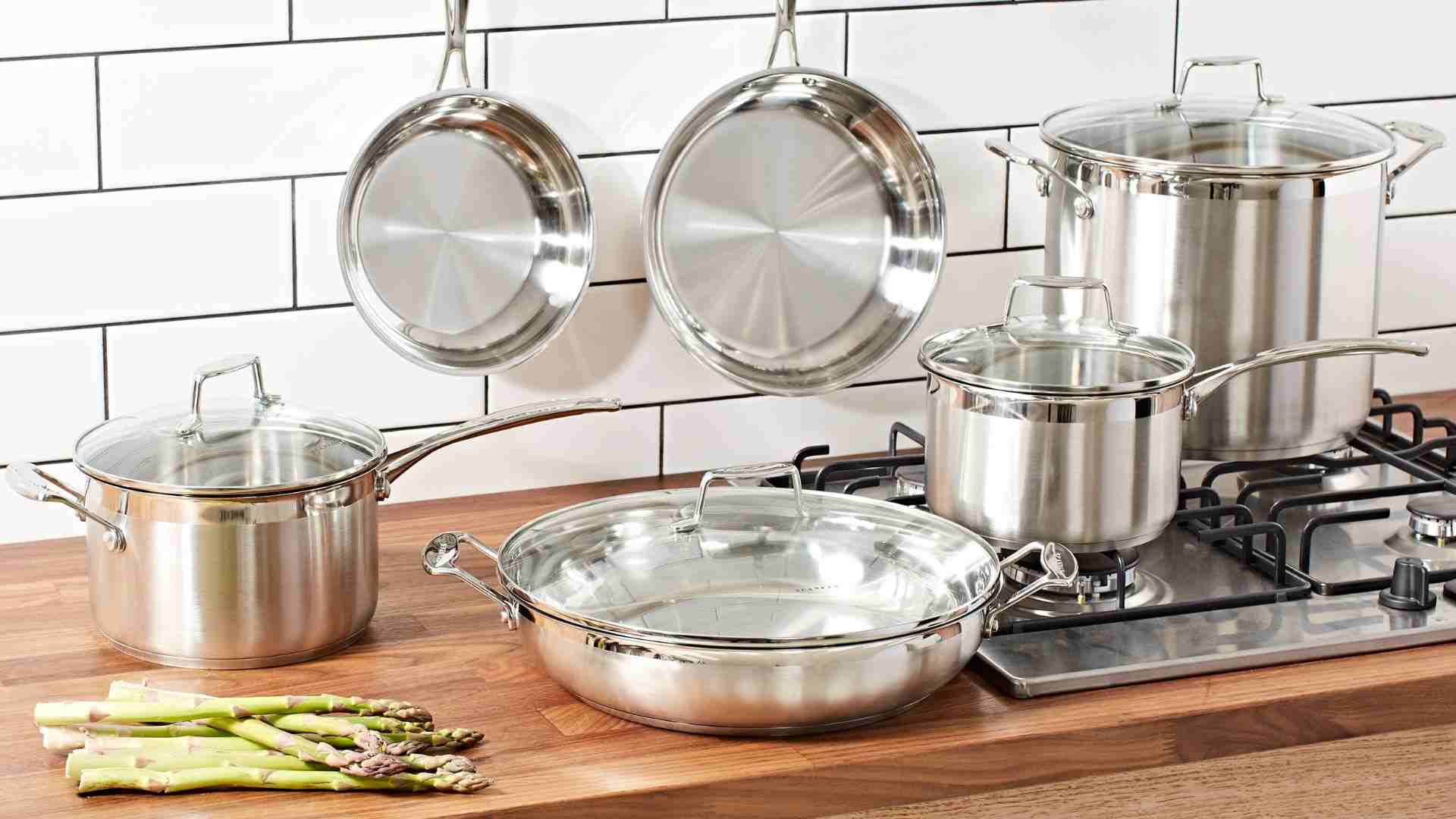Commercial cookware is a crucial investment for any industrial pantry. From frying pans to stockpots, these tools endure heavy usage daily. Adequate upkeep is essential to ensure they work optimally and last for years. Neglecting care can lead to costly replacements and a decrease in kitchen efficiency. Here are essential tips to maintain and extend the life of your commercial model.
Our products are compact & their small size and lightweight design make them easy to move and store, providing flexibility in kitchen arrangements. Check out our Bench-top fryers.
Clean Cookware Thoroughly After Every Use
Cleaning the appliance immediately after use is critical. Residual food particles and oils can harden over time, making cleaning harder. Use hot water and mild utensil detergent to remove dirt and grease. For stubborn residue, soak the product in hot, soapy water before scrubbing gently.
Avoid using abrasive scrubbers on non-stick and coated pans, as they can damage the surface. Stainless steel offerings can handle more abrasive scrubbing tools, but manufacturer guidelines must always be followed to avoid unintended damage.
Choose the Right Cleaning Products
Harsh chemicals can degrade cookware coatings over time. Opt for cleaning products designed for commercial kitchens. Non-stick equipment requires special care; use non-abrasive cleaners to protect its surface. Use cleaning agents specifically created for stainless steel to remove stains and maintain shine.
If you have baked-on grease, try a paste made of baking soda and water. Use it on the affected spot, let it sit for a few moments, and then wash gently.
Dry the Product Properly
Drying the appliance is just as important as cleaning it. Leaving pots and pans wet can result in corrosion, especially on cast iron and carbon steel products. After washing, dry them immediately with a clean towel. Place them on a drying rack for added protection to ensure all moisture is gone before storage.
Stainless steel items are resistant to rust but can develop water spots if not dried properly. A quick polish with a soft cloth will restore its shine.
Season Cast Iron and Carbon Steel Pans
Cast iron and carbon steel pans require regular seasoning to maintain non-stick surfaces and prevent rust. After cleaning, dry the pan thoroughly. Use a thin layer of cooking oil and heat it until it begins to smoke. Let the pan cool, then wipe the excess oil with a paper towel.
This procedure develops a protective layer that enhances cooking performance and extends the pan’s lifespan. Avoid using soap on seasoned pans, as it can strip the seasoning. For further information, buy commercial cookware online from LCE.
Avoid Overheating Cookware
Exposing offerings to extreme heat can cause warping, discolouration, and damage to non-stick coatings. Always use the equipment within the recommended temperature range. Preheating a pan for too long or without oil can also lead to damage.
Overheating non-stick models can release harmful fumes and degrade the surface. Unless the manufacturer specifies otherwise, use medium heat settings.
Store Cookware Correctly
Adequate storage is crucial to avoid dents, scratches and other issues. Use pot racks or shelving units to organise your appliances. Avoid stacking non-stick pans directly on each other, as this can damage the coating. Use protective padding between stacked pans, such as paper towels or silicone mats.
Consider installing a separate rack or using lid organisers. This step will keep everything accessible and prevent accidental damage.
Inspect Cookware Regularly
Frequent checks help locate problems before they escalate. Check for loose handles, warped bases, or worn coatings. Early addressing these problems prevents further damage and ensures the safety of your kitchen staff.
Products that can reach high temperatures quickly, which is ideal for searing meats, stir-frying, and boiling water. Browse our Burner Cooktops here.
If a non-stick pan shows signs of peeling or flaking, replace it immediately. Damaged coatings can leach into food, posing health risks. Once you shop commercial cookware made of stainless steel, polish away stains and inspect for cracks or dents.
Use the Right Utensils
Using inappropriate utensils can damage your surfaces. For non-stick models, always use wooden, silicone, or plastic utensils. Metal instruments can scratch and ruin the coating.
Stainless steel and cast iron options are more robust and can handle metal utensils. However, avoid heavy or sharp tools that may cause dents or scratches.
Know When to Replace Cookware
Even with proper care, these commercial items have a lifespan. If pans become warped, lose their non-stick properties, or develop cracks, it’s time to replace them. Continuing to use damaged models can compromise cooking quality and safety.
Monitor your inventory regularly and keep backups on hand to avoid disruptions. Spending money on high-class appliances reduces the frequency of changes.
Follow Manufacturer Guidelines
Each piece of cookware comes with specific care instructions. Always refer to the manufacturer’s cleaning, usage, and maintenance recommendations. Some options may require particular cleaning agents or temperature limits.
Failure to adhere to these regulations can void warranties and reduce the lifespan of your equipment. Keep user guidelines easily reachable for swift reference. You can gain further insights by contacting LCE – one of the leading commercial cookware suppliers & dealers.
Train Kitchen Staff on Proper Usage
Improper handling is a leading cause of appliance damage in commercial kitchens. Train your staff to use, clean, and store the product correctly. Emphasise the importance of using the proper utensils, avoiding overheating, and cleaning promptly.
Conduct regular refresher sessions to ensure everyone follows best practices. This step helps extend the life of your cookware and maintains kitchen efficiency.
Invest in High-Quality Cookware
High-quality offerings are built to withstand the demands of a commercial kitchen. While the initial expense may be on the higher spectrum, the long-term advantages outweigh the expense. Premium materials like stainless steel and heavy-duty aluminium are more durable and easier to maintain.
Look for products with features like reinforced handles, non-stick coatings, and multi-layered bases. These features enhance performance and longevity.
Rotate Cookware Usage
Using the same pots and pans repeatedly can lead to uneven wear. Rotate your appliances to ensure even usage. This simple practice prevents some pieces from wearing out faster than others.
Consider having duplicates to share the load for heavily used offerings. This strategy helps extend the lifespan of your entire collection. You can garner more details by contacting your trusted commercial cookware manufacturer & distributor.
Maintain a Clean Cooking Environment
A clean kitchen contributes to the longevity of your cookware. Spills, grease, and dirt can accumulate on the model and cooking surfaces. Ensure regular cleaning schedules for stoves, ovens, and storage areas.
A well-maintained kitchen reduces the risk of damage to your equipment and enhances overall efficiency.
Bring equipment to your kitchen that cooks food evenly and speeds up the cooking process, reducing the risk of hot or cold spots. Check out our Convection Oven range.
Conclusion
Maintaining commercial cookware is a shared responsibility in any professional kitchen. By following these practices, you can safeguard your investment, enhance cooking performance, and ensure safety. Clean your equipment thoroughly, store it properly, and address issues promptly. Train your staff to handle the appliance carefully, and choose high-quality tools designed for durability.
With the right approach, your commercial product can serve your kitchen reliably for years.






